WHAT IS PROBATE?
Probate is, simply put, a court-supervised legal process to transfer assets from the deceased to the living. While you’re alive, you can write a check to give away money, you can sign the title to your vehicle, you can sign a deed to transfer land. Once you’re gone, you can’t do this anymore, so the court will step in and give your assets away for you.
That sounds simple enough, but, let’s delve a little deeper into what this means.
The big question is, who should the court give your assets?
Historically, ancient custom would determine who would receive your assets, and depending on where, when, and how you died, the answer could be quite different. In the western world the most common inheritance is through Male Primogeniture (the oldest son inherits everything), while in southeast Asia, among the Lao and the Aceh, all daughters inherited equally. In Ancient Egypt, the eldest son inherited twice as much as other sons, while the Celts and the Sami gave preference to the youngest son, and under Sharia, daughters inherit half as much as sons. The Mayans would let the eldest daughter inherit from the other, and the eldest son inherit from the father. On the other hand, the Basques would give their land to the one considered best qualified, while several cultures would pass everything to oldest living relative instead. To this day, throughout the world, most cultures still have (partially) fixed distribution patterns, and every State has laws that say how your assets will be distributed if you die without a Will.

But what if you don’t like your State’s default distribution laws?
Luckily, there is a solution – a Will, also known as a Last Will and Testament.
The oldest known Will can be traced back to ancient Greece. Under Athenian law, sons would inherit, but, if you didn’t have any sons, and met certain other qualifications, you could choose to leave your assets to your friends, rather than your distant relatives. Of course, whoever inherited your assets was obligated to marry your daughter!
The Romans adopted this custom, and like the Greek, originally it only applied to those without sons. Over time, the rules were adjusted so that any man could make a Will, but certain minimums were required to be distributed to their descendants. Part of that custom has carried over today, where no State allows you to disinherit a minor child, and most States provide a statutory minimum that must be provided to your spouse (or, more precisely, that a Spouse may demand if you did not provide enough). These days, all states permit a spouse to waive any rights by signing a pre-nuptial agreement, and many states also allow for a post-nuptial agreement.
But, doesn’t a Will avoid Probate?
Actually, the opposite is true. A Will is a set of instructions you create while you’re alive to tell the probate court who should receive your assets when you’re gone. So far, this article has only addressed the history of asset distributions, now it’s time to discuss the practical side of it.
How does Probate work?
As stated earlier, probate is a court-supervised process to transfer assets from the deceased to the living. That means the first thing that needs to be done is to petition the Court (i.e. fill out the necessary documents and file them at the appropriate court house) to open a Probate. The Court will want proof that someone died – so a death certificate needs to be attached to the petition. The petition should list who the next of kin are (i.e. the children, spouse, and other family members of the decedent), and nominate a Personal Representative. Sometimes, there will be a dispute over who the Personal Representative should be, and the court will need to hold hearings before appointing someone. Next, the Court will ask if there is a Will, and, if so, is it valid, and is anyone going to contest the Will. The Court will also ask if there are any claimants, meaning did the deceased owe anyone any money, and are there any long-lost relatives who have a right to inherit.
In effect, this means that the Court will pause the entire proceeding, during which time the Personal Representative must publish in a local newspaper that the decedent passed away, as well as other basic information, that would put any claimant on notice that the probate procedure has started. The Personal Representative also has a duty search for any other creditors of the decedent, and make an inventory of the decedent’s assets, so these may eventually be distributed to the rightful heirs.
If there are no challenges and everything runs smoothly, the Personal Representative will then be obligated to collect all the decedent’s assets, possibly sell some assets, and then distribute the assets to the decedent’s heirs, all under the court’s supervision. In Florida probate “typically” takes about a year for a standard, formal, administration, while in many other states it can take a bit longer
Of course, that’s “if there are no challenges and everything runs smoothly”. Some common reasons why an estate may take longer include:
- One or more beneficiaries cannot be found
- One or more unexpected beneficiary (illegitimate child no one knew about, children born after the Will was signed, etc.)
- The original Will cannot be found
- Litigation over the validity of the Will, or whether the Will should be admitted to probate
- Multiple Wills
- Litigation over who should be the Personal Representative
- Litigation against creditor claims of the estate
- The estate itself is a party to a lawsuit
- The assets of the estate cannot easily be collected, or assets have been absconded (hidden or stolen)
- Income tax issues, including any audits
- Litigation over accountings
Where multiple issues exist, it could take 5 years or more to resolve everything. Some notably long cases include Peter Thelluson, who died in 1797 and whose probate was finally decided in 1859 and Daniel Clark, who died in 1813 and whose probate was finally resolved in 1891. The longest open probate of which this author is aware was opened in 1929, and is still being contested! (as a claimant was also a client, attorney-client privilege prevents disclosure of any details related to the case).
The best part is, during that time, fees keep adding up. The only reason the longest-running probate in history ended, that of William Jennings, who died in 1798 and whose probate was abandoned in 1915, is because after over a hundred years’ worth of fees, there was nothing left! In Florida, the statutory fees for a Personal Representative and for a probate attorney can be as high as 3% each, or 6% in total (not including court fees and other costs). Just imagine 6% of everything you own, imagine spending that much on probate!
Even under the best of circumstances, probate takes time and is expensive, not to mention a matter of public record.
Okay, Probate is bad. But, how do I avoid Probate?
Easy – don’t own anything! Remember, the purpose of probate is to transfer assets from someone who passed away to someone who remains. If you don’t own anything, there’s no need for a probate.
Of course, that’s not a good solution, because most people own at least a few things – and giving everything away can be a bad idea if you live much longer than you expect. So the better answer is to not own anything that needs to go through probate, or, alternatively, to own your assets in such a way that probate can be avoided.
A bad example in Florida is the homestead, which is not probate property, but often still involves a petition to the probate court to provide clear title. Alternatively, a life estate is a deed that can be filed with the court that transfers an ownership interest to the grantee, effective upon the grantor’s death. In plain English, it’s a deed you file and record today that states that as soon as you pass away, your property belongs to your heir – no probate required. There are some serious downsides to a life estate, such as not being able to change your mind afterwards, and creating immediate rights and obligations you might not want. Most of those issues can be avoided through the use of an “Enhanced Life Estate”, which provides all the benefits of the life estate without any of the drawbacks. Lastly, property held as joint tenancy with rights of survivorship or as tenants by the entirety do not need to go through probate while any of the named owners are still alive. Please consult with a dedicated estate planning attorney prior to using any deeds as part of your estate plan, as a single word can be the difference between a good result and an unwelcome outcome.
Most financial accounts allow you to designate a “transfer on death” or “Pay on Death” beneficiary, someone who becomes the owner should you pass away. Likewise, a life insurance policy can name a beneficiary rather than your estate. This is arguably the easiest DIY way to avoid probate, even if it’s only limited to certain assets, but please consult with a professional before assigning beneficiaries to any tax-advantaged retirement accounts, like a 401k or an IRA.
One of the best ways to avoid probate is to create a trust (or, depending on circumstances, several trusts), and transfer ownership of your assets to the Trust. With a revocable Trust, you can be the Settlor (the person who creates the Trust), the Trustee (the person who manages the Trust assets), and the Beneficiary (the person who receives assets from the Trust), meaning that you’re in full control of your assets, but technically don’t own them, so you can avoid probate altogether.
The best part of a Trust is that you can include a lot of other provisions, such as a successor Trustee who will manage your assets on your behalf if you become incompetent, and provisions to provide asset protection for your heirs after you’re gone. When it comes to Trusts, you can get very creative.
We at Aloia, Roland, Lubell & Morgan are happy to help you plan ahead. Please don’t hesitate to contact us at (239) 971-9750 to schedule a free consultation to discuss your particular situation, and to obtain a personalized recommendation of the best way to plan for your future.


